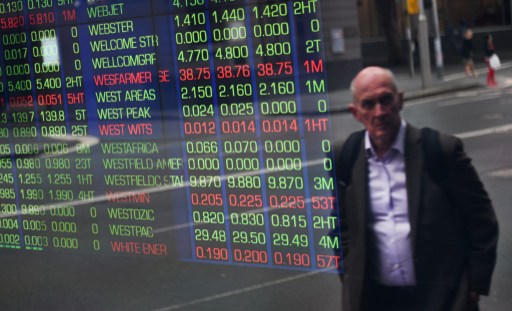
Brambles Share Price (BXB) Ends On New High As Outperformance Continues
Brambles shares (ASX: BXB) closed at new highs today, up 3.63% at A$24.56, continuing a period of outperformance that extends to 5 years. An impressive 73.69% surge in the last 12 months underscores the company’s resilience and ability to capitalize on global supply chain dynamics. Over the past 5 years, Brambles has gained 123%, offering…

Kelsian Group Share Price (KLS) Moves Positive YTD, Recovery Gathers Pace
Kelsian Group’s share price (ASX:KLS) continued to rally today, closing at A$3.71 AUD, up 3.92% on the day, and extending gains on the week to an impressive 17.78%. This surge reflects renewed investor interest following a period of volatility and strategic repositioning. However, a closer examination reveals a complex picture, with both promising opportunities and…

Zip Shares Carve Out V-Shaped Recovery As Rally Continues
Zip Co shares (ASX:ZIP) are capturing attention once again as it continues it’s rapid recovery, currently trading A$2.87, for a 5.9% gain on the day. This resurgence follows a period of volatility and strategic recalibration for the Buy Now, Pay Later (BNPL) firm. The stock has demonstrated resilience, carving out a V-shaped recovery trend that…

Megaport Shares (MP1) Pull Back From Highs In Test of Support
Megaport shares (ASX: MP1) have been a huge outperformer on the ASX this year. With MP1 having added 79.1% since the start of 2025, new 52 week highs of $14.37 were hit in yesterday’s session, only for the stock to pull back 6.01% in today’s session. A pause, or a retracement to find near term…

CBA Shares Make New High To Go With Market Cap Milestone
The Commonwealth Bank of Australia share price (ASX: CBA) is currently in the process of making record-breaking valuations, with a gain of 1.48% on the day bringing new highs of A$183.31 in the process. Over the past year, CBA shares have gained an impressive 44%, significantly outperforming many of its peers, as well as the…

Australia’s Superannuation Guarantee Set to Rise
Superannuations in Australia are about to shift significantly, with the Superannuation Guarantee (SG) rate set to reach 12% on July 1, 2025. This final step in a phased increase, which began over a decade ago, promises to reshape retirement savings for Australian workers and ripple through the nation’s financial markets. For employees, the primary benefit…

TechOne Shares (TNE) Impressive Rally Back on Track
TechnologyOne (ASX:TNE) has established itself as one of Australia’s premier Software-as-a-Service (SaaS) businesses, consistently delivering solid growth and profitability. The TechOne share price has added a further 1.98% today, moving back in sight of highs ($42.88) at $41.15 after a mightily impressive rally that has now extended to 124.5% over the past 12 months. But…

ASX 200 Materials Index (XMJ) Leads Markets Lower as Miners Stutter
The S&P/ASX 200 Materials Index (INDEXASX: XMJ) lead Aussie markets lower today, closing at 16,014.80 points, for a loss of 1.56%. Downward pressure on the sector led the ASX to close 0.12% down on the day and reflects a complex interplay of global economic factors, commodity price volatility, and sector-specific headwinds. The XMJ index, a crucial…

CSL Shares (ASX: CSL) Under Pressure Looking For Support
CSL Limited shares (ASX:CSL) have shown considerable chop in recent years, with the last five years of price action highlighting a market that is uncertain about which direction to take. The company, a stalwart of the ASX and a global leader in biotechnology, finds itself trading at A$239.29 per share, moving closer to the 52wk…

Telstra Group Shares (TLS) Hit Multi-Year High – What Next?
Telstra Group Limited (ASX:TLS) has broken through to a new 52-week high, reaching A$4.91 during intraday trading before settling slightly lower at A$4.88 into the close. This milestone marks a significant achievement for the telecommunications giant, with gains of 21% YTD, and 37.46% in 12 months painting a picture of outperformance. But what’s driving the…




